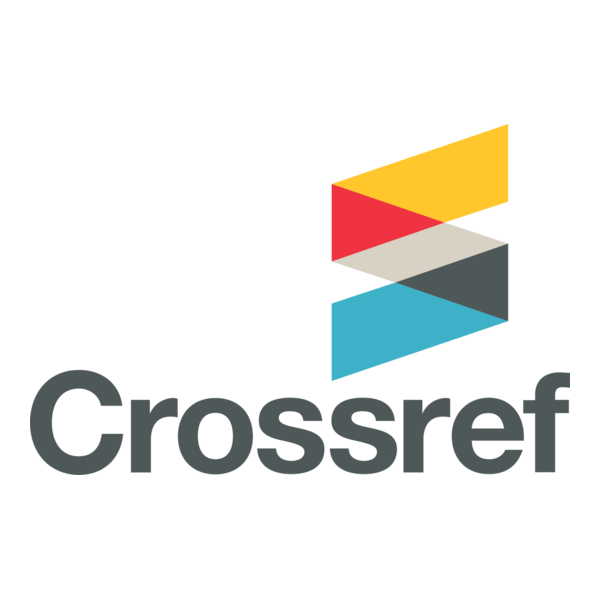Information Bubble: How to Control Democracy in the Information Society Era
DOI:
https://doi.org/10.37886/ip.2023.001Keywords:
filter bubble, internet law, democracy, decisional privacy, fake news, disinformationAbstract
Research Question: The research lead to answer the question: Do filter bubbles distort the electoral process in such a way that it violates the right to free elections?
Purpose: The main research objective is to show that information bubbles violate decisional privacy, which in consequence leads to a violation of the correctness of the election process.
Method: : The research methodology includes a systematic review of scientific papers and studies developed by international organizations and of reports.
Results: The research shows the effects of filter bubbles on election process. Thanks to this, we can see that not all information is distributed evenly on the Internet and some of the information does not reach the recipients. The main research objective is to show that filter bubbles violate decisional privacy, which in consequence leads to a violation of the correctness of the election process. The author presents why states should regulate social media in the field of filter bubbles and what steps should be taken.
Organization: The development of the information society poses new challenges for the legislator. One of them is the problem of regulating social media and related tools - including filter bubbles. The article presents the influence of filter bubbles on the electoral process. The article reviews the current research on this problem- both empirical and doctrinal.
Society: The article deals with a socially relevant topic, which is the manipulation of the electoral process. The examples studied in the work on the cases of recent elections in the USA, Great Britain or Brazil show that the problem affects practically every corner of the world. The result of the study is to show that filter bubbles pose a threat to democracy.
Originality: The problem of filter bubbles and their impact on the electoral process is still an unexplored phenomenon. The work analyzes examples of the impact and indicates the steps that should be taken to start work on regulating this phenomenon. This research is based on the concept of social control over the social media algorithm.
Limitations / further research: The purpose of this article is to identify problems and review solutions. Research on the problem should be further established on the basis of legal and factual analysis.
References
Allcott H, Gentzkow M., Social Media and Fake News in the 2016 Election (2017), Stanford University, Journal of Economic Perspectives, Vol. 31, No. 2, 211-236. https://doi.org/10.1257/jep.31.2.211
Bader M. (2018), Disinformation and elections, Security and human rights 29, 24-35, doi: 10.1163/18750230-02901006
Bastos M, Mercea D, Baronchelli A. (2018) The geographic embedding of online echo chambers: Evidence from the Brexit campaign. PLoS One. 13(11):e0206841. https://doi:10.1371/journal.pone.0206841
Bok S. (1083), Secrets: on the ethics of concealment and revelation, Oxford.
Bond, R. M., Fariss, C. J., Jones, J. J., Kramer, A. D., Marlow, C., Settle, J. E., Fowler, J. H. (2012). A 61-million-person experiment in social influence and political mobilization. Nature,489(7415), 295-298 https://doi.org/10.1038/nature11421
Bradshaw S, Howard P.N., Kollanyi B., Neudert :-M (2020) Sourcing and Automation of Political News and Information over Social Media in the United States, 2016-2018, Political Communication, 37:2, 173-193, DOI: 10.1080/10584609.2019.1663322
Bruns A. (2019), Filter buble, Internet Policy Review vol.8 issue 4, https://doi.org/10.14763/2019.4.1426
Bruns A., Highfield T. (2016), Is Habermas on Twitter? Social media and the public sphere (in:) The Routledge companion to social media and politics., Enli G., Bruns A., Larsson A.O., Skogerbo E., Christensen C., London, 56-73;
Cela E. (2015) Social Media as a New Form of Public Sphere, European Journal of Social Sciences Education and Research 4(1), 195-200
Celeste E. (2018) Digital Constitutionalism: Mapping the Constitutional Response to Digital Technology’s Challenges, HIIG Discussion Paper Serier 2.,
Chadwick R. (2012) Encyclopedia of Applied Ethics (Second Edition), Cambridge
Committee of experts on Media Pluralism and Transparency of Media Ownership (MSI-MED), Feasibility, Study on the Use of Internet in Elections, MSI-MED (2016)10rev (9 March 2017), https://rm.coe.int/16806fd666,
Dahlgren P.M (2021), A critical review of filter bubbles and a comparison with selective exposure, Nordicom Review, 42(1), 15–33. https://doi.org/10.2478/nor-2021-0002
Doublet Y-M (2019), Disinformation and electoral campaigns, Strasbourg
Dubois E., Blank G. (2018), The echo chamber is overstated: the moderating effect of political interest and diverse media, Information, Communication & Society vol 21 issue 5, 729-745. https://doi.org/10.1080/1369118X.2018.1428656
Facebook Help Centre: https://www.facebook.com/help/166738576721085
Fishkin J.S. (1991), Democracy and Deliberation: New Directions for Democratic Reform , New Haven: Yale University Press, 1991.
Fleczer D. (2015), Godność i prywatność osoby w świetle Konstytucji Rzeczypospolitej Polskiej, Roczniki Administracji i Prawa nr XV(1),19-30.
Fletcher, R., Nielsen, R. K. (2018). Are people incidentally exposed to news on social media? A comparative analysis. New Media & Society, 20(7), 2450–2468. https://doi.org/10.1177/1461444817724170
Frederik J. Zuiderveen Borgesius, Email Frederik J. Zuiderveen Borgesius, Judith Möller, Sanne Kruikemeier, Ronan Ó Fathaigh, Kristina Irion, Tom Dobber, Balazs Bodo, Claes de Vreese (2018), Online Political Micro-targeting: Promises and Threats for Democracy, Utrecht Law Review, Vol. 1(1), 82-96, DOI: 10.18352/ulr.420
Gillespie T. (2014), The Relevance of Algorithms, in: Tarleton Gillespie, Pablo J. Boczkowski, and Kirsten A. Foot, eds. Media Technologies: Essays on Communication, Materiality, and Society, Cambridge: MIT Press, 167-194.
Kitchens B., Johnson S. L., Gray P., (2020) Understanding echo chambers and filter bubbles: the impact of social media on diversification and partisan shifts in news consumption, MIS Quarterly Vol. 44 No. 4, 1619-1649 , doi: 10.25300/MISQ/2020/16371
Kopff A. (1971), Koncepcja prawa do intymności i do prywatności życia osobistego, Studia Cywilistyczne, t. XX..
Kreft J., (2012) Społeczeństwo informacyjne- krytyczne podejście, Zeszyty Naukowe Uniwersytetu Szczecińskiego. Ekonomiczne Problemy Usług, Gospodarka elektroniczna: wyzwania rozwojowe t. 2, 754-762.
Lührmann A., Grahn S., Morgan R., Pillai S., Lindberg S.I. (2019) State of the world 2018: democracy facing global challenges, Democratization, 26:6, 895-915, DOI: 10.1080/13510347.2019.1613980
Malinowski B (2016), Jak Facebook zamyka nas w bańce informacyjnej. Algorytm filtrujący newsfeed a zjawisko filter buble, Zarządzanie Mediami no 4( 1), 15-22, DOI: 10.4467/23540214ZM.15.002.5212
McIntosh C. (2020) Cambridge Advanced Learner’s Dictionary & Thesaurus, Cambridge: Cambridge University Press.
Milan S., Agosti C. (2019), Personalisation algorithms and elections: breaking free of the filter bubble, Internet Policy Review
Milczarek E. (2020), Prywatność wirtualna; Unijne standardy ochrony prawa do prywatności w internecie, Warszawa.
Ochman A., (2015) Medialna sfera publiczna według Jürgena Habermasa, Studia Paradyskie, t. 25, 147-168,
Opinion 3/2018 on online manipulation and personal data (Ref. no. 152)
Pariser E. (2011), The Filter Bubble: What the Internet Is Hiding from You, New York.
Pariser E. (2015) Did Facebook’s Big Study Kill My Filter Bubble Thesis? Wired. Retrieved from https://www.wired.com/2015/05/did-facebooks-big-study-kill-my-filter-bubble-thesis/
Pniewski Z. (1994), Personalizm społeczno-etyczny jako adekwatna teoria prywatności, Roczniki Nauk Społecznych tom XII (1), 109-131
Protecting Electoral Integrity In The Digital Age The Report of the Kofi Annan Commission on Elections and Democracy in the Digital Age January 2020
Provvedimento in materia di trattamento di dati presso i partiti politici e di esonero dall’informativa per fini di propaganda elettorale” published in the Official Gazette of the Italian Data Protection Authority number 71 on 26.03.2014
Recuero, R., Soares, F., Vinhas, O., Volcan, T., Hüttner, L., & Silva, V. (2022). Bolsonaro and the Far Right: How Disinformation About COVID-19 Circulates on Facebook in Brazil. International Journal Of Communication, 16, 24, 148–171,
Schroeder R. (2014), Does Google Shape What we Know, Prometheus 32, no.
, 145-160, https://doi.org/10.1080/08109028.2014.984469
Schwaiger, L., Vogler, D., & Eisenegger, M. (2022). Change in News Access, Change in Expectations? How Young Social Media Users in Switzerland Evaluate the Functions and Quality of News. The International Journal of Press/Politics, 27(3), 609–628. https://doi.org/10.1177/19401612211072787
Shirky C. (2011), The Political Power of Social Media: Technology, the Public Sphere, and Political Change, Foreign Affairs, Vol. 90, No. 1, 28-41;
Somer M., McCoy J. (2018) Déjà vu? Polarization and Endangered Democracies in the 21st Century, American Behavioral Scientist 62, no. 1, 3-15. https://doi.org/10.1177/000276421876037
Strümholm S. (1967), Right of Privacy and Rights of The Personality a Comparative Survey; Working paper prepared for the Nordic Conferen.ee on privacy organized by the International Commission of Jurists, Stockholm.
Sunstein, C. R. (2001). Republic.com, Harvard Journal of Law and Technology vol 14 no 2, 753-766
Suzor N. (2018), Digital Constitutionalism: Using the Rule of Law to Evaluate the Legitimacy of Governance by Platforms, Social Media + Society no 4(3), https://doi.org/10.1177/2056305118787812
Vīķe-Freiberga, V., Däubler-Gmelin, H., Hammersley, B., Pessoa Maduro, L.M.P. (2013). A free and pluralistic media to sustain European democracy. https://www.rcmediafreedom.eu/Publications/Reports/A-free-and-pluralistic-media-to-sustain-European-democracy
Vīķe-Freiberga, V., Däubler-Gmelin, H., Hammersley, B., Pessoa Maduro, L.M.P. (2013). A free and pluralistic media to sustain European democracy. https://www.rcmediafreedom.eu/Publications/Reports/A-free-and-pluralistic-media-to-sustain-European-democracy
Wójcik J. (2018), Prywatność jako przedmiot wymiany, Roczniki Kolegium Analiz Ekonomicznych, no 49, 125--135.
Wu T. (2016), The Attention Merchants: The Epic Scramble to Get Inside Our Heads, New York.
Zuiderveen Borgesius, F., Trilling, D, Möller, J., Bodó, B, de Vreese, C., Helberger, N. (2016). Should we worry about filter bubbles?. Internet Policy Review, 5(1). doi: 10.14763/2016.1.401.
Additional Files
Published
How to Cite
Issue
Section
License
Copyright (c) 2023 Ewa Milczarek

This work is licensed under a Creative Commons Attribution-ShareAlike 4.0 International License.
![]()








